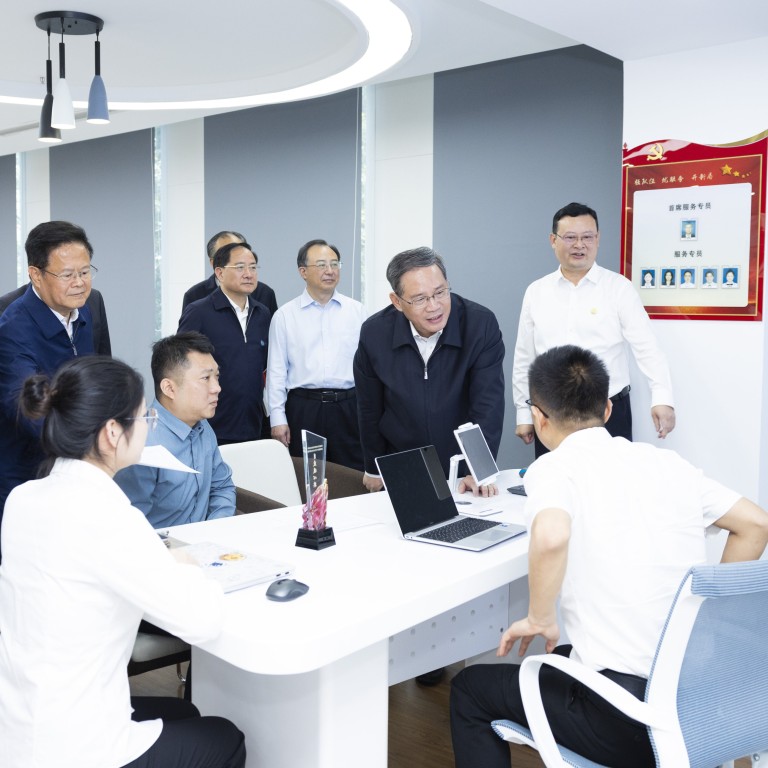
China premier balks at US blacklist with visit to sanctioned surveillance giant, calls for digital economy revolution
- Li Qiang’s inspection tour in China’s economic powerhouse features some of the strongest high-level calls for a digital transformation, with huge hardware and software upgrades in the works
- China expects its collective computational power to increase 52 per cent by 2025
During a weekend visit to eastern China’s hi-tech firms – including one blacklisted by the United States – Premier Li Qiang coaxed industry players to pace up their digital transformations while generating new growth momentum.
“There’s a promising future for the digital economy. The company should strive for core technological breakthroughs and, as an industry leader, grow together with smaller industry players,” he was quoted as saying, using a term that roughly includes all economic activities that depend on, or are enabled by, digital technologies.
China names new science ministry chief to help lead hi-tech self-reliance drive
The trip was made as the world’s second-largest economy shifts its focus from quantity to quality but faces rising containment efforts from the US and its allies in many hi-tech fields, including export controls on some key equipment.
Hikvision, the world’s largest maker of security cameras, has been on Washington’s “entity list” since 2019 for spying fears and Beijing’s alleged treatment of Uygur Muslims and other predominantly Muslim ethnic minorities. Five of its subsidiaries in Xinjiang were added to the blacklist earlier this year for “human rights violations and abuses” in the region, according to US commerce authorities.
Xinhua said the Chinese premier also visited the Hangzhou-headquartered Semitronix, a supplier of electronic design automation (EDA) software, a critical tool in semiconductor chip manufacturing on which the US has imposed an export ban.
Li asked it to “improve the level of self-reliance and independent controllability” by pursuing the development of the entire industry chain.
In a meeting reportedly held after the visits, Li called on local officials and business owners to expedite their digital transformations, especially in the manufacturing and artificial intelligence sectors.
Computing power infrastructure is a bedrock resource for the development of the digital economy
Li also called for improvements in computing infrastructure – the collection of hardware and software elements that support the flow, processing, storage and analysis of data – to provide a solid foundation for the digital economy.
And to that end, an “action plan for computing power infrastructure development” was jointly released on Monday by six ministries – led by the Ministry of Industry and Information Technology (MIIT) – vowing to make significant progress in terms of computing power, carrying capacity, storage and application.
China expects its collective computational power to increase 52 per cent by 2025. The nation’s computing power reached 197 EFLOPS by the end of June, compared with 180 EFLOPS last year, data from the MIIT showed, using a measurement of computing speed. By 2025, that number should reach 300, according to the new plan.
“Computing power infrastructure is a bedrock resource for the development of the digital economy,” Xinhua said in a report on the State Council’s website.

